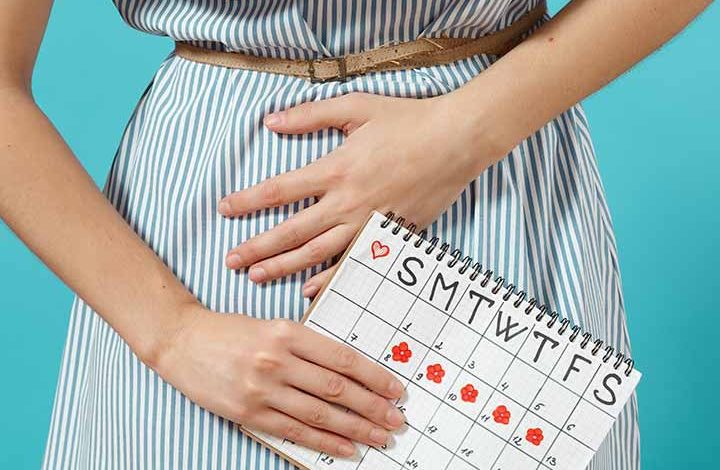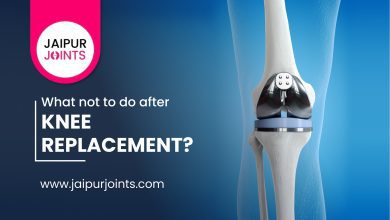
Sometimes some women experience symptoms of their periods. This gives them the sign that they are coming. These symptoms are known as premenstrual syndrome (PMS). If you are confused about how to know when your period is coming, let’s take a little understanding here. more than 90 percent of people who bleed monthly experience PMS. For most of them, PMS symptoms are mild and for others, it can range severely with the disruption of activities. The symptoms of periods may vary from person to person but it can be difficult initially to understand your body and know that your body is responding in a particular way on each onset of the period. If you or anyone you know is going through a dilemma of what to do and what not during this period, you can consider talking to the expert Gynecologist in Noida.
-
Abdominal cramps
Abdominal, or menstrual cramps are normal to have as the most common PMS symptom. It can start with a day leading to your period and may last till you are complete with your period. These cramps may range from mild to dull pain and even minor aches to extreme pain. It can hinder you from having the regular activity that you perform usually throughout the day.
- Menstrual cramps are felt in the lower abdominal area and can be achy, making you feel to rotate throughout your sleep.
- These cramps are in general uterine contractions which shed blood from the inner lining of the uterus when the pregnancy does not take place.
- In the body, the production of fatty-acid hormones called prostaglandins initiates the presence of menstrual or abdominal cramps.
- These are the lipids that often lead to inflammation but can help to regulate ovulation and thereby help with menstruation.
- Some people may feel abdominal cramps when their menstrual flow is heaviest on all days.
Certain health issues can make abdominal cramps more severe and these include:
- endometriosis
- cervical stenosis
- adenomyosis
- pelvic inflammatory disease
- fibroids
-
Breakouts
If you are not able to understand the simple questions like how to know when your period is coming, you can talk to your gynecologist about the same. Although menstrual cramps are usual to appear with periods, you may also feel break-outs. Many women experience acne before their period about a week before they start with their menstrual bleeding. These are pre-period breakouts that take place on the chin and jawline and may appear anywhere on the face or other body parts. Acne cause with the usual hormone changes associated with the female reproductive cycle.
- In case no pregnancy takes place, the estrogen and progesterone levels start declining, while the other hormones like testosterone start increasing slightly. These are known as androgens, which stimulate the production of sebum- oil produced by the glands within the skin.
- When too much sebum is produce, it causes acne to break out, which is one of the common activities or symptoms during this period.
- Also, period-related acne dissipates during the end cycle of the menstruation or shortly after the hormones like estrogen and progesterone level start to climb.
-
Tender breasts
In the middle of your menstrual cycle somewhere around ovulation, hormones like progesterone start to rise. This causes the mammary glands within the breast to appear large and swell. This ultimately produces a change in the shape of the breast, making you feel swollen right before your period even if the progesterone level rises again within a few days. For some women, the symptoms can be slightly different, and some others may feel heavy, lumpy, and extremely discomforted body shape during menstrual bleeding.
-
Fatigue
As your period approaches and when the pregnancy does not take place, your body starts shifting the gear from producing hormonal changes to menstruating. The hormone levels start fluctuating and you may feel fatigued as the result. You may also feel mood changes, especially during the heavy flow, and may feel little or heavily tired – the changes may vary. There can also be chances that you may feel a little sleepy throughout the day or may have trouble sleeping. Therefore, lack of proper sleep can make you fatigued throughout the day.
-
Bloating
You may feel heaviness in your tummy and you may also feel uncomfortable in your perfectly fitted jeans or may also have trouble zipping up the jeans all during the peak days of your period. These changes are broughten by stomach bloating. The changes in the level of hormones like estrogen and progesterone can make your body retain water and salt more than usual. This may result in bloating and can make you feel heavy in your stomach.
You may also feel like you have gained weight but it is the cause of PMS bloating. Now, when you understand how to know when your period is coming, you can take the necessary steps to tackle your situation.
Read More –
How to Reduce Period Pain
Warning signs of Asthma in children
Maximum stitches in normal delivery
Ovarian Cyst: Is Pregnancy Affected by it
PCOS Diet Plan – What Food to eat and avoid
Best treatment options for Head and Neck Cancer at Kokilaben Hospital
Cloudnine Hospital Gurgaon For High-Risk Pregnancy in Gurgaon





